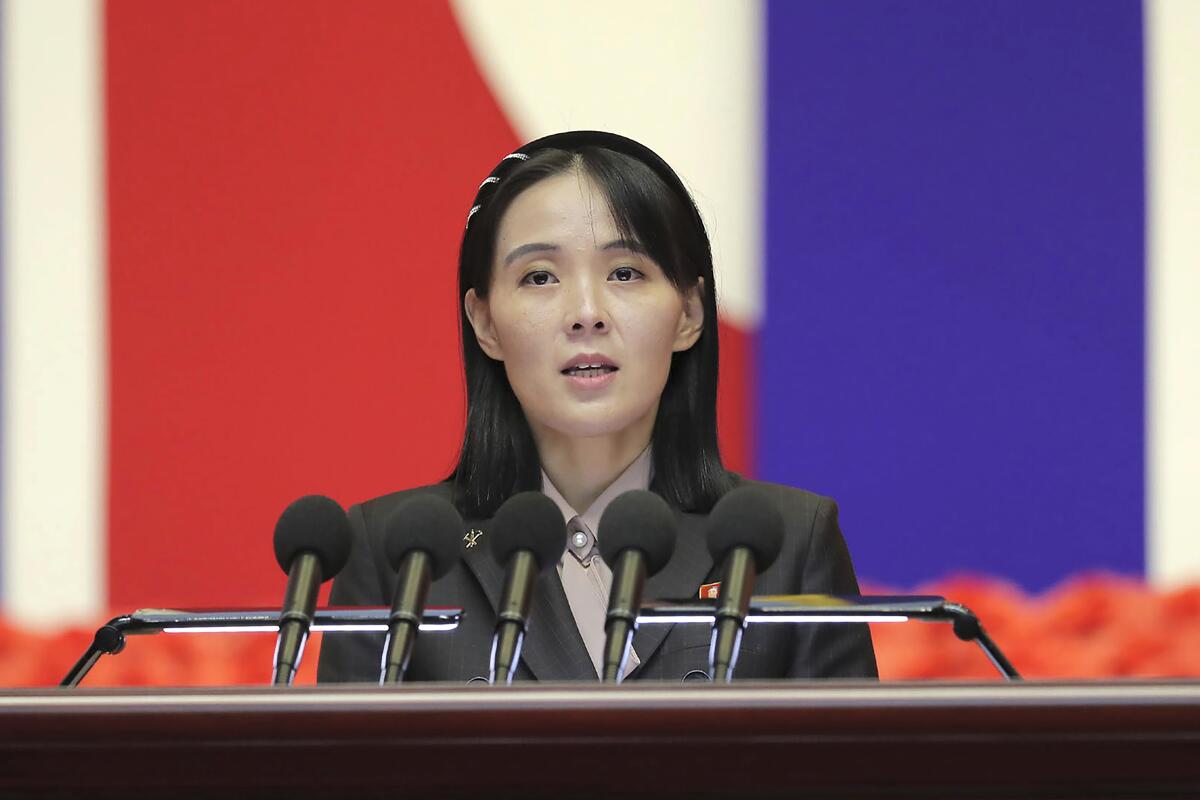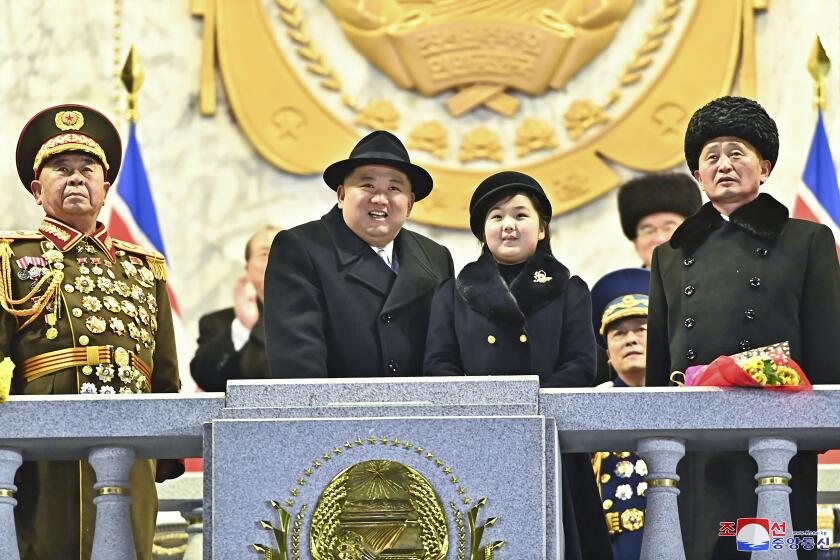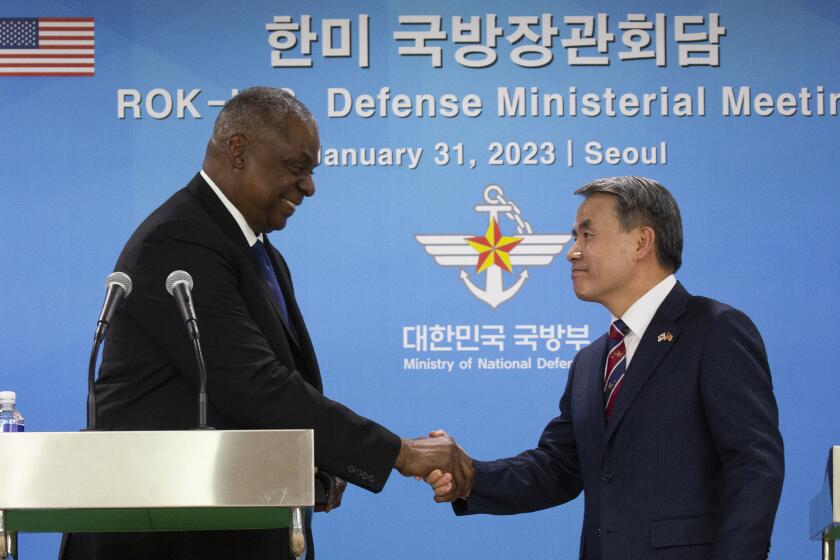Kim Jong Un’s sister warns North Korea ready to act against the U.S. and South Korea

SEOUL — The influential sister of North Korean leader Kim Jong Un warned Tuesday that the country is ready to take “quick, overwhelming action” against the United States and South Korea, as the allies expand their regular military drills.
Kim Yo Jong’s statement came a day after the United States flew a nuclear-capable B-52 bomber to the Korean peninsula for a joint drill with South Korean warplanes. The U.S. and South Korean militaries are also preparing to revive their largest field exercises later this month.
“We keep our eye on the restless military moves by the U.S. forces and the South Korean puppet military and are always on standby to take appropriate, quick and overwhelming action at any time according to our judgment,” Kim Yo Jong said in a statement carried by state media.
She didn’t elaborate on any planned actions, but North Korea has often performed missile tests in response to U.S.-South Korean military drills because it views them as an invasion rehearsal.
North Korean dictator Kim Jong Un’s appearance at a military parade with his daughter, Kim Ju Ae, fueled speculation that she is being groomed as a future leader.
“The demonstrative military moves and all sorts of rhetoric by the U.S. and South Korea, which go so extremely frantic as not to be overlooked, undoubtedly provide [North Korea] with conditions for being forced to do something to cope with them,” she said.
Monday’s flyover of the B-52 bomber was the latest in a series of U.S.-South Korean aerial exercises involving powerful U.S. aircraft. The U.S. deployed a long-range B-1B bomber or multiple B-1Bs to the peninsula a few times earlier this year. South Korea said those drills demonstrated the allies’ ability to make a decisive response to potential North Korean aggression.
On Friday, the South Korean and U.S. militaries announced they would conduct a computer-simulated command post training from March 13 to 23 and restore their largest springtime field exercises, which were last held in 2018.
The allies had canceled or scaled back some of their regular drills since 2018 to support now-dormant diplomacy with North Korea and guard against the COVID-19 pandemic. But they’ve been restoring their exercises after North Korea last year conducted a record number of missile tests and openly threatened to use its nuclear weapons in potential conflicts with its rivals.
The U.S. will increase its deployment of weapons such as fighter jets and bombers to the Korean Peninsula amid the North’s growing nuclear threat.
In a separate statement Tuesday, North Korea’s Foreign Ministry called the flyover of the U.S. B-52 bomber a reckless provocation that pushes the situation on the peninsula “deeper into the bottomless quagmire.” The statement, attributed to the unnamed head of the ministry’s foreign news office, said “there is no guarantee that there will be no violent physical conflict” if U.S.-South Korean military provocations continue.
North Korea often unleashes fiery rhetoric in times of heightened animosity with the United States and South Korea. Possible steps North Korea could take include a nuclear test or the launch of a new type of intercontinental ballistic missile targeting the mainland U.S., observers say.
Last month, Kim Yo Jong threatened to turn the Pacific into Pyongyang’s firing range. In her statement Tuesday, she said North Korea would consider a possible U.S. attempt to intercept a North Korean ICBM a declaration of war. She cited a South Korean media report saying the U.S. military plans to shoot down a North Korean ICBM if it’s test-launched toward the Pacific.
All known North Korean ICBM tests have been made at steep angles to avoid neighboring countries, and the weapons landed in the waters between the Korean peninsula and Japan.
More to Read
Sign up for Essential California
The most important California stories and recommendations in your inbox every morning.
You may occasionally receive promotional content from the Los Angeles Times.












